

Supervisors
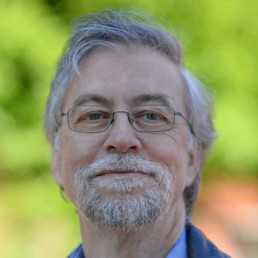
Prof. Rolandt Brandt
ESR7 – ESR8 – ESR10 – ESR11
Roland Brandt is Full Professor and Head of the Department of Neurobiology, School of Biology/Chemistry, and co-opted member of the Institute of Cognitive Science and the Center for Cellular Nanoanalytics (CellNanOs) at the University of Osnabrück, Germany. He studied Biochemistry and Philosophy at the Universities of Tübingen and Berlin (Germany). In 1990, he obtained his doctoral degree at the Max-PlanckInstitute of Molecular Genetics, Berlin, and continued as a postdoctoral research fellow at the Center for Neurologic Diseases (CND), Harvard Medical School, Boston (USA). After returning to Germany in 1994, he became an independent research Group Leader at the Interdisciplinary Center for Neuroscience (IZN) at the University of Heidelberg, Germany, and moved 2002 to Osnabrück to become founding director of the Department of Neurobiology at the University. His research focuses on molecular mechanisms of neuronal development, aging and degeneration. He is author of more than 80 peer reviewed papers, which have been cited over 5,500 times. He serves as Deputy Chairperson of the Scientific Advisory Board of the “Alzheimer Forschung Initiative” (AFI), as Section Editor of the journal Brain Research Bulletin (Elsevier) and as Editorial Board Member of the journal Current Neuropharmacology (Bentham).
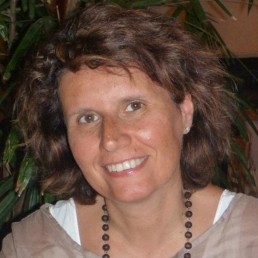
Prof. Graziella Cappelletti
ESR8 – ESR10 – ESR11 – ESR12
Graziella Cappelletti is Associate Professor of Human Anatomy at the University of Milan, Department of Biosciences, Italy. She holds a degree in Biology from University of Milan and moved to the Neurological Institute “C. Besta”, Milan, where she started her studies on molecular mechanisms in neurodegeneration. She spent a period in Eric Karsenti’s lab at EMBL (Heidelberg, Germany) for acquiring expertise in the study of microtubule dynamics. Since 2001 she has a permanent position at the University of Milan. Her research interests are focused on cytoskeleton and its pivotal role in health and disease of the nervous system with the goal to identify key players in triggering neurodegeneration. Moving from purified proteins and cell cultures to mice models and human tissues, she has a long-lasting experience in studying the microtubule system, its organization and dynamics, in Parkinson’s disease. To date, she is co-author of 60 papers in peer-reviewed journals and one patent. She is coordinator of the master-degree course in Biology Applied to Research in Biomedicine and member of the teaching committee of the PhD school in Molecular and Cellular Biology.
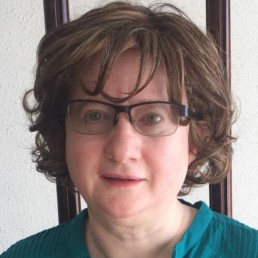
Prof. Marta Cascante
ESR2 – ESR12 – ESR13
Marta Cascante is Full Professor at the Department of Biochemistry and Molecular Biomedicine at Universitat de Barcelona (UB). The research team “Integrative Systems Biology, Metabolomics and Cancer” that she leads has achieved outstanding international recognition for her pioneer work on developing and applying tools for the study of metabolic flux reprogramming in multifactorial diseases. She holds a degree in chemistry and a PhD in biochemistry from UB, where she was distinguished with the Outstanding Graduate and Thesis Awards. She has authored over 250 publications and supervised 30 PhD thesis. She is partner of European Translational Research Projects (H2020), including 3 Marie Curie Training Programs, in the field of systems medicine and metabolomics and member of the editorial advisory boards of Metabolomics and BMC Systems Biology. She also served in the scientific committee of numerous international conferences. She is member of the institute of Biomedicine of University of Barcelona (IBUB) and coordinator of the Spanish Network of Systems Medicine (SAF2015-70270-REDT). She leads a GC-MS platform for Stable-Isotope-Resolved Metabolomics at UB and she has also large experience in supporting biomedical community at national and international level in targeted metabolomics profiling for a wide range of sample types using the core LC-MS platform at CCiT at UB. She has been distinguished in 2010 and 2015 with ICREA Academia Prize and in 2015 with the Narcís Monturiol Medal of the Catalan Government for her scientific merits. She has large experience in collaborative projects with companies and clinical research centers to transfer the results of her research both at national and international level. Research interests are focused on metabolic alterations underlying multi-factorial diseases with the goal to identify key proteins to be used as biomarkers or drug targets. Furthermore, in the framework of H2020 project “PheNoMenal” her research group has contributed to develop and deploy an e-infrastructure to process, analyze and mine molecular phenotyping data, to facilitate large-scale data analysis.
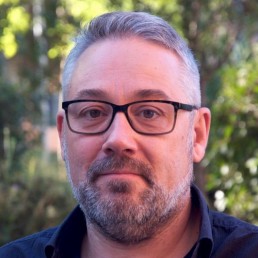
Dr. Fernando Diaz
ESR9 – ESR11
Fernando Diaz is Senior Staff Scientist at the Consejo Superior de Investigaciones Cientificas, Centro de Investigaciones Biolόgicas, Madrid. In 1989, he graduated in Chemistry and in 1993 he gained the PhD in Chemistry from the Complutense University of Madrid. Tubulin and its assembly product, microtubules, are among the most successful targets in cancer chemotherapy. When he started his scientific career in 1988 only three binding sites had been discovered in tubulin, those of colchicine, taxane and vinca. Since then five new binding sites have been discovered, (eribulin, maytansine, pore site, laulimalide/peloruside and pironetin), from these five sites, four of them had been discovered and characterized by his group, either alone or in collaboration with other groups.
Furthermore, in coordination with a drug discovery group from Victoria University (New Zealand), a natural product synthesis group from the Swiss Institute of Technology and a crystallography group from the Paul Scherrer Institute (Switzerland), he provided with his group the biochemical techniques needed to optimize the formation of drug/protein complexes allowing the consortium to determine the structure of tubulin in complex with drugs and providing essential structural information about the interaction of these compounds with their binding site and the structural mechanism of activation of tubulin.
Another important problem that has occupied an important part of his scientific career is the search of methods that allow the in vitro evaluation of the potency of a drug in different tumoural cells. They have developed a method for the high throughput evaluation of the binding affinity of taxane binding site microtubule stabilizing agents which is now a standard for evaluating microtubule stabilizing agents. Later they have proof that the binding affinity of a given compound is a good predictive value for their toxicity, allowing the development of highly cytotoxic compounds using quick evaluations of the effect of chemical modifications in the drug structure.
Moreover, the development of a drug able to overcome resistance to chemotherapy is a final objective of his research. The technology developed to evaluate the binding affinity of paclitaxel site ligands have been employed to develop a super taxane, with more than 500 times the binding affinity of the parent compound paclitaxel, the compound is highly effective in all kind of tumoural cells resistant to paclitaxel chemotherapy. The same kind of approach has been used with the company Pharmamar S.A. to select a compound with high affinity targeting the newly discovered Maytansine site. The compound is effective in tumours resistant to chemotherapy and has entered clinical Phase II in Spain and USA. He is author of 165 publications and head of the Evaluation Panel for Biological Sciences of ALBA synchrotron.
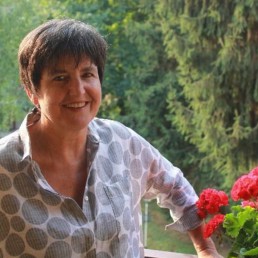
Prof. Maria Luisa Gelmi
ESR6
Maria Luisa Gelmi is a full professor in the Department of Pharmaceutical Sciences, University of Milano.
- Graduated in Chemistry, University of Milano
- Holds PhDs in Organic Chemistry and Pharmaceutical Sciences
- Worked as a full professor at the University of Milano
Current interests include i) diastereo- and enantioselective syntheses of non-coded amino acids characterized by poly-functionalization; ii) synthesis of peptide and peptidomimetics iii) conformational characterization of peptides (NMR, CD, IR); iv) use of peptide/peptidomimetics for biological applications (ID, Maf, PFKFB3 proteins, amyloid); v) use of short peptide sequences for the preparation of nanomaterials (nanotubes; nanoparticles; decorated gold-nanoparticles; fibers).

Dr. Dragos Horvath
ESR2
Chemical engineer of the Cluj University, DH obtained his master’s and Ph.D. (1997) in organic chemistry/molecular modelling within the framework of a joint European laboratory, associating the Pasteur Institute of Lille and the Free University of Brussels. He next joined the drug discovery company Cerep, where he lead the chemoinformatics team (Paris/Seattle). In 2003 he returned to academic research, as CNRS scientist, joining in 2007 Laboratory of Chemoinformatics of prof Varnek at the University of Strasbourg. He is a CNRS research director since 2011. His expertise includes 2D chemoinformatics and 3D simulation methods, with focus on nature-inspired distributed computing.
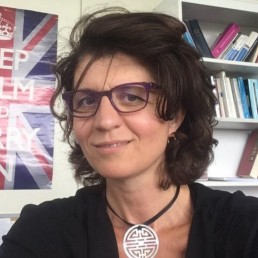
Prof. Sandrine Ongeri
ESR5 – ESR6 – ESR7
Sandrine Ongeri is Full Professor in Medicinal Chemistry at the Faculty of Pharmacy, in the department BioCIS, a mixed unit CNRS/University Paris Sud, belonging to the University Paris Saclay, France. In 1995, she graduated in Pharmacy and in 1999 she gained the PhD in Organic Chemistry from the University of Paris Descartes (France). In the frame of her PhD, she worked for 12 months at the Dyson-Perrins Laboratory, Oxford (UK). In 1999, she got a two years post-doctoral position at the Univ Milan (Italy), funded by a European Network Grant. She became associated Professor at the Univ. Paris Sud in 2001 and Full Professor in this University in 2011. She has supervised 15 PhD students (7 in co-tutoring). She is co-author of 50 publications. She is Deputy director of the Doctoral School Therapeutic innovation (ITFA) that comprises 300 PhD students (40% of foreigners). She was involved in Marie Curie Host Fellowships for Early Stage Research project (“Foldamers” 2005-2009), and she is currently partner of a FET-OPEN (NoPest) in the frame of the European programme HORIZON 2020 (2019-2024).
The research interests of her team FLUOPEPIT “Molécules fluorées et peptides d’intérêt thérapeutique” are focused on the design, the synthesis and the biophysical evaluations of peptidomimetics as modulators of protein-protein interactions (PPIs) involving β-sheet secondary structures. The team is particularly renowned in the field of PPIs involved in Alzheimer’s disease and type 2 Diabetes. Her team is also well recognized in the design and the synthesis methodologies of non-natural fluorinated amino acids.

Prof. Daniele Passarella
ESR3 – ESR9
Daniele Passarella is expert of organic synthesis, natural product chemistry and bioactive compounds. He leads a group of 10 researchers (post-doc, PhD students, master students). He is author of around 130 papers. He coordinated two COST Actions about Angiogenesis and Cancer Stem Cells. He acted as team leader in several national and international financed projects centered on Cancer and Neurodegeneration. He is the Italian Coordinator of an Italy-India Strategic Projects focused on tubulin targeting. He is involved in several collaborations about synthesis, biological evaluation, isolation of natural products, computational studies with academic Institutions, Research Centres and Pharmaceutical Companies.
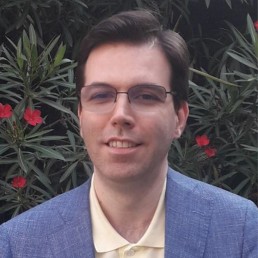
Prof. Stefano Pieraccini
ESR1 – ESR4
Stefano Pieraccini is Professor of Physical Chemistry at the University of Milan, Department of Chemistry, Italy. In 2002, he graduated in Chemistry and in 2005 he obtained the Ph. D. in Chemistry from the University of Milan. His research interests are related to the use of molecular modelling techniques to study biomolecules. His activity has been focused on protein-protein interactions and protein stability modelling using molecular dynamics and free energy calculation techniques. He is author of 45 papers on peer reviewed journals and numerous communication in international conferences.
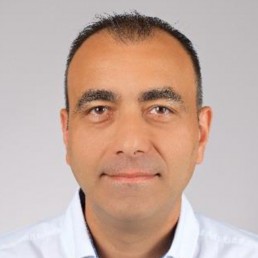
Dr. Andrea Prota
ESR3 – ESR4
Dr. Andrea E. Prota, PhD, is a Senior Scientist at the Paul Scherrer Institute, Villigen PSI, Switzerland (2004 – present; Laboratory of Biomolecular Research, Division of Biology and Chemistry).
- 2004 – 2010: Senior Scientist, Paul Scherrer Institute, Villigen PSI, Switzerland
Focus: structural analysis of VEGFs, Neuropilins and their cellular receptors and ligands involved in tumor
angiogenesis. - 2002 – 2004: Postdoctoral fellow, Paul Scherrer Institute, Villigen PSI, Switzerland
Focus: structural analysis of DNA mismatch repair proteins, VEGFs, Neuropilins and their cellular receptors
and ligands involved in tumor angiogenesis. - 2000 – 2002: Postdoctoral fellow, Beth Israel Deaconess Medical Center, Massachusetts
General Hospital & Harvard Medical School, Boston, MA (USA)
Focus: structural analysis of viral receptors and attachment proteins by X-ray crystallography. - 1996 – 1999: PhD in pharmaceutical chemistry (Dr. sc. nat. ETH Zürich)
- 1989 – 1995: Graduate degree in pharmaceutical sciences (ETH Zürich)
Since early 2010 he is a tenured Senior Scientist in the Laboratory of Biomolecular Research at the Paul Scherrer Institute. His research interests include the use of X-ray crystallography and cryo-EM in combination with biochemical and biophysical methods to provide the molecular mechanisms of protein interactions implied in the regulation of microtubule cytoskeleton.
His current research activity is devoted to the structural analysis of tubulin interactions with microtubule targeting agents. He has supervised 4 Ph.D. students and is author of 51 papers published in international journals.
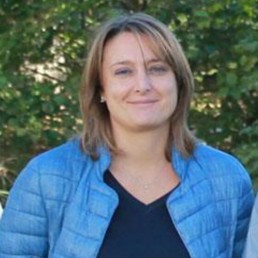
Prof. Sara Pellegrino
ESR5
Sara Pellegrino is Associate Professor of Organic Chemistry at the University of Milan, Department of Pharmaceutical Sciences, Italy. In 2002, she graduated in Pharmaceutical Chemistry and Technology and in 2005 she gained the Ph. D in Medicinal Chemistry from the University of Milan. In 2005-2006 she has been visiting scientist (Vigoni fellowship) at the University of Regensburg (Germany). Her research interests are the synthesis of peptides and peptide mimics, and their application in Medicinal Chemistry, Biochemistry and Material Science. She is author of 70 papers in peer-reviewed journals, of three patents filed, and of more than 60 communications at international conferences.
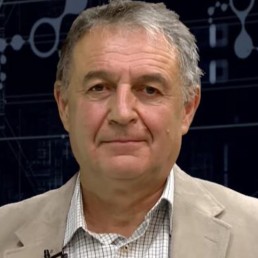
Prof. Alexandre Varnek
ESR1 – ESR2 – ESR13
Alexandre Varnek got his PhD in physical chemistry from the Moscow Institute of Inorganic and General Chemistry of the Russian Academy of Sciences. In 1981-1995, he occupied positions of Assistant Professor then Associate Professor at the Mendeleyev University of Chemical Technology in Moscow. In 1995, Alexandre joined the University of Strasbourg, France, where he holds the position of a full professor in theoretical chemistry, head of the Laboratory of Chemoinformatics and the director of two MSc programs: master in chemoinformatics and master “In Silico Drug Design”. Alexandre is (co)author of 7 books and more than 200 research articles and book chapters in the field of chemoinformatics and molecular modeling. He is the main organizer of the biannual Strasbourg Summer School in Chemoinformatics.
